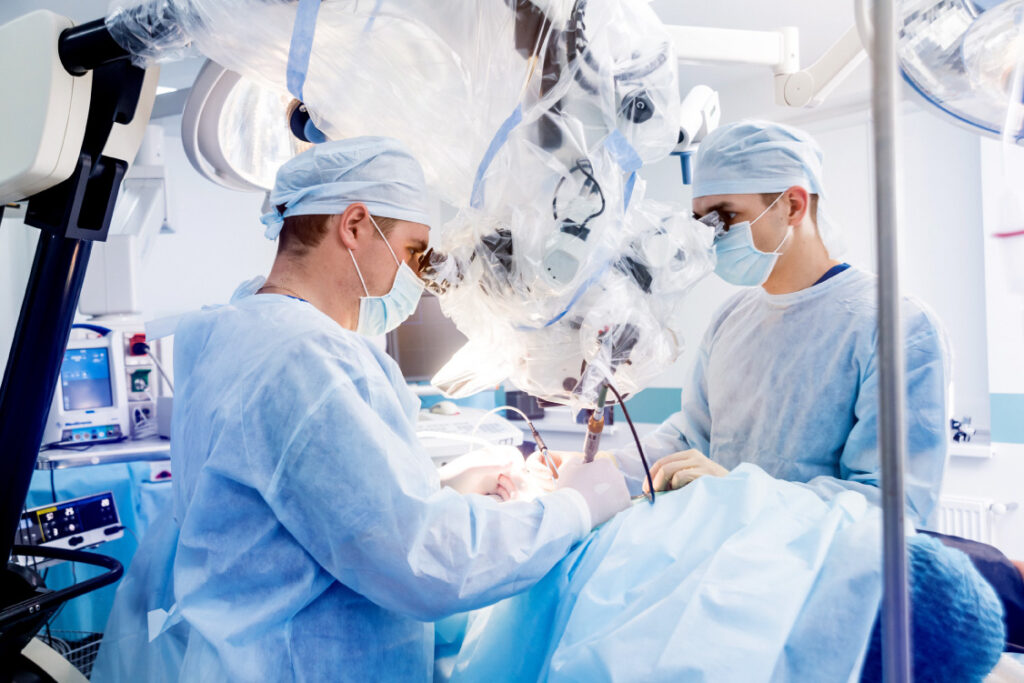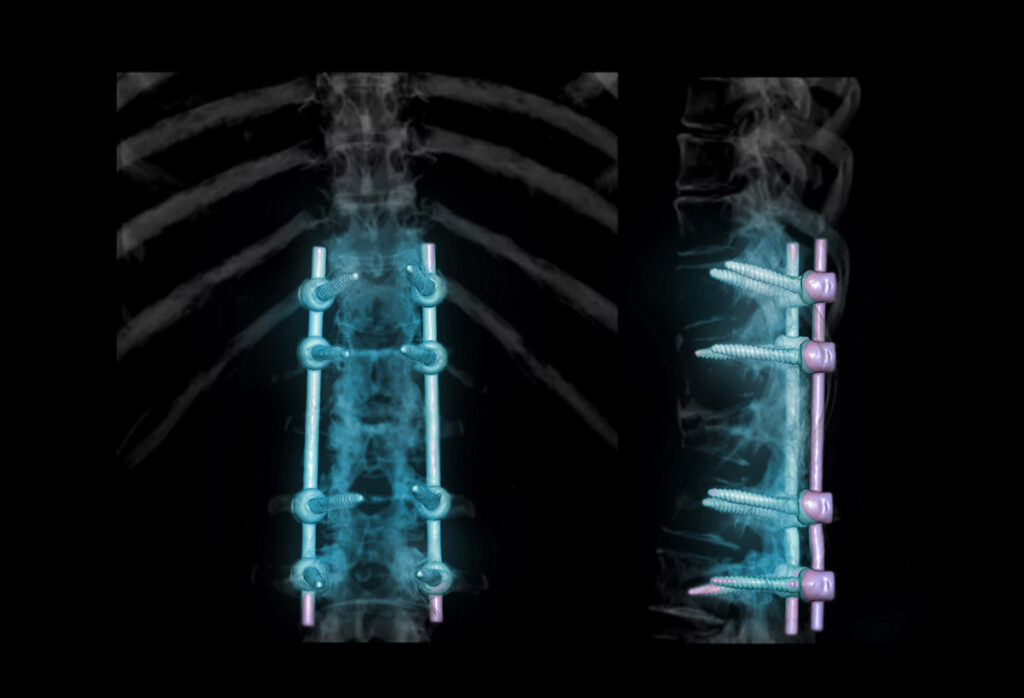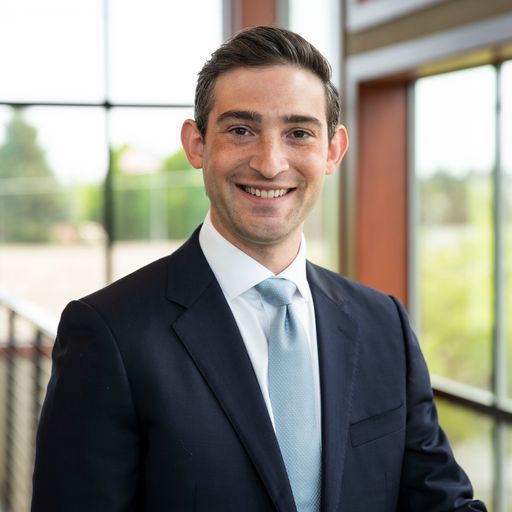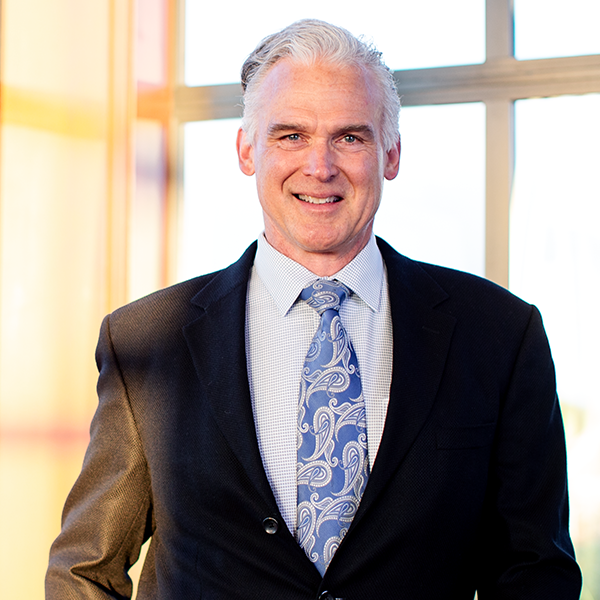

Back
GENERAL INFORMATION
Puget Sound Orthopaedics (PSO) back experts offer diagnosis and treatment for a wide range of spinal conditions. Surgical and nonsurgical options are available for treating painful back injuries that can be caused by aging, trauma and structural irregularities. PSO spine surgeons offer procedures enabling patients to return to their active lifestyles by restoring the support and flexibility of the spine.
Your spine is composed of three curved segments: cervical (neck), thoracic (mid back/chest region) and lumbar (lower back). These naturally curved sections allow you to stand upright and maintain your balance. Twenty-four bones, collectively called vertebrae, are stacked atop one another to form these sections. Ligaments connect the vertebrae and help support the spine, while disks in between each vertebra give your spine flexibility. Your spinal cord is housed in the canal created by this column of vertebrae.
Injuries to the Back & Spine
Back pain has a number of causes. As we age, osteoarthritis of the spine becomes more common, especially in the lower back. Osteoarthritis occurs when the cartilage in between your vertebrae wears down over time causing painful friction and inflammation.
Muscle pain and soreness caused by overactivity (playing sports, an intense workout, heavy lifting, etc.) is also common and typically resolves within a few days. If the pain doesn’t resolve, you may want to call your primary care physician.
Injury or trauma to the back can sometimes cause disk herniation or fractures. Disk herniation occurs when a disk bulges outward from the vertebrae toward the spinal canal. This creates pressure on your spinal nerves, resulting in pain, often in the buttocks and legs. Spinal fractures are often caused by injury during a car accident, major fall or other traumatic event.
Other spinal fractures can be caused by underlying conditions, such as osteoporosis (which causes weak, brittle bones) without any additional trauma. Spinal fractures only affecting the vertebrae – not the spinal cord – can sometimes be treated without surgical intervention.
When to See a Specialist
If you are experiencing back pain, or other symptoms related to a back injury, you may require treatment from a back specialist.
- Pain radiating from your back to your leg/foot
- Pain in your back, legs or feet that worsens while standing/walking and is relieved by sitting
- Persistent pain after heavy lifting
- Numbness, tingling or weakness in your arms or legs
- Loss of coordination in your arms and hands
Be sure to call our office if:
- You are referred by your primary care physician or other specialist
- Current, conservative treatments including physical therapy are not helpful or make your condition worse
Treatment Options
Your doctor will discuss all treatment options with you. The best treatment for your injury or condition will be determined in combination with your overall health.
There are several nonoperative treatment options for back pain. These might include physical therapy, epidural cortisone injections, pain medication or anti-inflammatories. If surgery is necessary, PSO spinal specialists can perform a wide variety of procedures ranging from minimally invasive to major reconstruction.
Additional Resources
Common Conditions
And more…
Our specialties extend beyond what you see here. If you have a special need, make an appointment with us!






